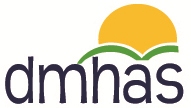ellen.boynton@ct.gov
The goal of the Office of Multicultural Healthcare Equity is to assure that cultural competence is an integral quality of all services that DMHAS provides for people of every ethnic/cultural group.
-
Mental Health: Culture, Race & Ethnicity (supplement to the Surgeon General's Report on Mental Health)
-
American Sign Language Request Form (for OOC use only!)
Office of Multicultural Healthcare Equity Staff
Ellen Boynton, Director, (860) 418-6806
ellen.boynton@ct.gov
Elizabeth Flanagan, Associate Research Scientist (203) 764-7592
elizabeth.flanagan@yale.edu
DMHAS/OMHE
410 Capitol Avenue. 4th Flr., MS14 OMHE
P.O. Box 341431
Hartford, Ct 06134
Office Fax (860) 418-6792
The DMHAS/OMHE multicultural training recruits 35 participants annually for 21 full days of multicultural training over a ten month period. The students must produce a product which is usually a culturally competent service project for their area of service which can be implemented and replicated in other settings and regions. The persons seek personal awareness of their own culture not only in the class encounter with a diverse body of students but also by means of a personal heritage ethnographic search which is reported to the plenary class. Journals recording new cultural experiences are prepared and submitted for study by training staff.
The 21 day Multicultural training curriculum addresses dealing with clinical issues in the following areas:
-
Orientation of the class to the course with cultural self-assessment pre-survey
-
When cultures meet. An opportunity to share and learn about the diverse composition of the class.
-
What is culture? What is Ethnicity? Cultural parameters.
-
What is worldview? An in depth experience of how individuals perceive differences.
-
Communication Styles. An important step toward cultural competence.
-
Ethnic/Cultural Identity Development
-
Program Development that incorporates cultural issues.
-
Europeans Americans. Ethnicities. Cultures. History of immigration and oppression.
-
African Origin. From Africa to slavery to modern reality of challenges today.
-
Latinos/Hispanic cultures.
-
Native Americans
-
Asian Americans
-
Jewish Issues in Multiculturalism
-
Gay/Lesbian/Transgender/BI-sexual and Gender Issues
-
Psycho-educational groups
-
Racism/Oppression
-
History/Pathology and Healing
-
Development of Protective Mechanisms Against Racism
-
Multicultural Ethics in behavioral health settings.
-
Projects
-
Ethnographies

